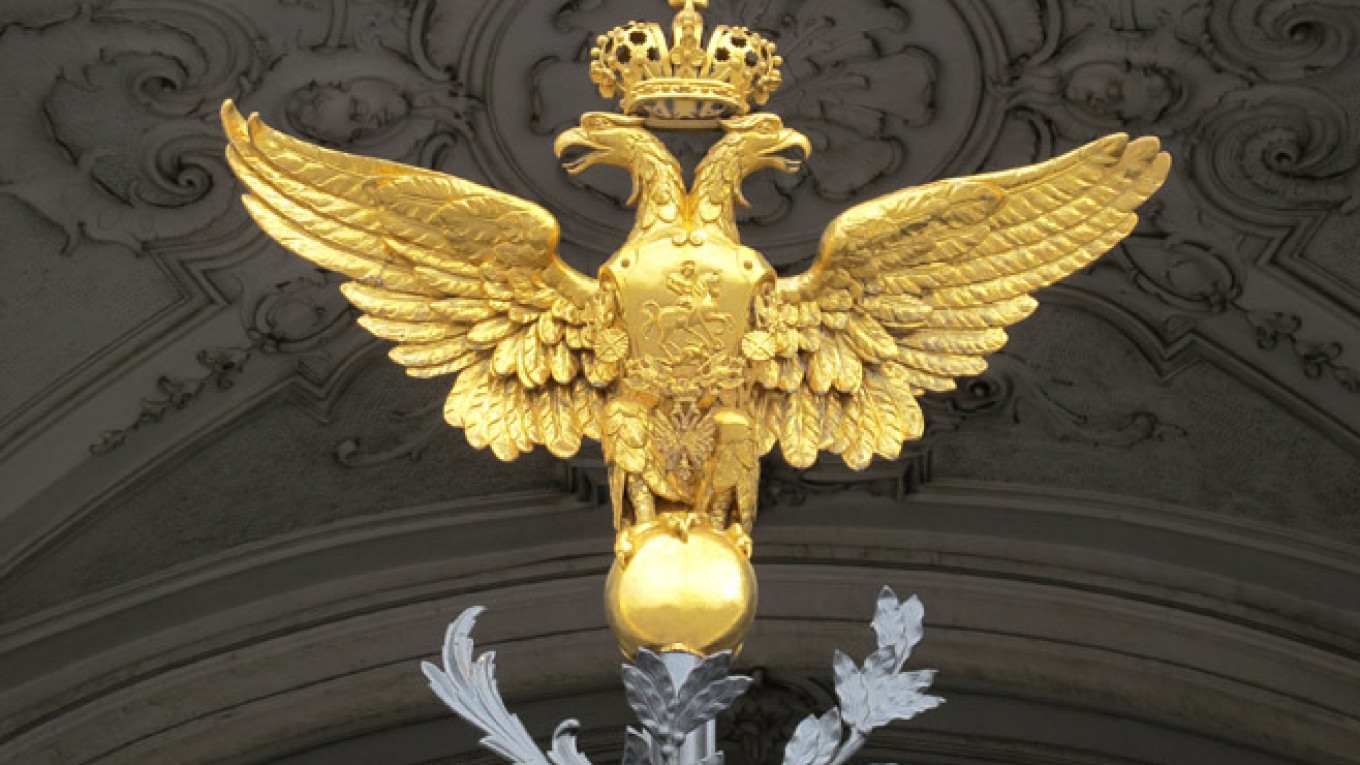Русский мир: Russian world, broadly and vaguely defined
As someone deeply concerned with the protection of human rights — mine in particular — I have of course been very interested in the whole notion of русскоязычный человек (a Russian-speaking person) and Russia's eagerness to take such a person — possibly me — under her governmental wing.
So I started reading up on ways of being a Russian speaker and citizen. As usual, it's all a bit more complicated than I thought. Dictionaries are not in agreement about some terms, and people, those русскоязычники (Russian speakers, slangily), have their own definitions too. Here's what I have learned so far:
Гражданин/гражданка России: Citizen of Russia. If you are born in Russia, it does not matter what your native language or ethnicity is.
Россиянин/россиянка: Russian citizen. Like the word российский, this means a person who is a citizen of Russia regardless of ethnicity or language.
Русский/русская: Ethnic Russian. May or may not be a citizen of Russia.
Человек, чей родной язык — русский: A person whose native language is Russian. Seems to be the highest grade Russian speaker, cited wittily by Joseph Brodsky in his Nobel Prize speech: Хотя для человека, чей родной язык — русский, разговоры о политическом зле столь же естественны, как пищеварение, я хотел бы теперь переменить тему. (Although discussions about political evil are as natural as digestion for someone whose native language is Russian, I'd like to change the topic.) Родной язык (native language) is a person's primary functional language and not the language of one's ethnicity.
Носитель языка, a language speaker who is not necessarily native. For fast-track citizenship in Russia, носителем языка признается человек, который владеет русским языком и повседневно использует его дома и в культурной сфере (a language speaker is someone who speaks Russian and uses it at home and in the cultural sphere every day).
That's me! I definitely speak Russian, at home the pooch and I converse exclusively in Russian — Где мячик? Поищи! (Where's your ball? Go look for it!) — and even though I'm a little shaky on what культурная сфера is, watching television and translating must count, right?
Владеющий русским языком: A person who knows Russian, often qualified: свободно (fluently), хорошо (well), частично (somewhat).
Русскоязычный: Russian speaking, Russian-language. Can be used to describe media like русскоязычная газета (Russian-language newspaper) as well as people. Some dictionaries define it as "Russian speakers outside Russia," others define it as "Russian speakers in general." Level of fluency varies from total to sketchy, depending on the speaker. Synonym: русскоговорящий.
And then there's a new group of Russian state-protected people, who fall outside the standard international categories: та часть украинского населения, которая чувствует свою неразрывную не только этническую, но и культурную, языковую связь с Россией, чувствует себя частью широкого русского мира. (That part of the Ukrainian population who feel an inseparable ethnic as well as cultural and linguistic connection with Russia, who feel part of the broad Russian world.)
Yowzah. You don't need be a citizen, co-religionists, or even ethnically Russian to fall under Russia's governmental linguistic wing. It's going to get crowded under there.
Michele A. Berdy, a Moscow-based translator and interpreter, is author of "The Russian Word's Worth" (Glas), a collection of her columns.
A Message from The Moscow Times:
Dear readers,
We are facing unprecedented challenges. Russia's Prosecutor General's Office has designated The Moscow Times as an "undesirable" organization, criminalizing our work and putting our staff at risk of prosecution. This follows our earlier unjust labeling as a "foreign agent."
These actions are direct attempts to silence independent journalism in Russia. The authorities claim our work "discredits the decisions of the Russian leadership." We see things differently: we strive to provide accurate, unbiased reporting on Russia.
We, the journalists of The Moscow Times, refuse to be silenced. But to continue our work, we need your help.
Your support, no matter how small, makes a world of difference. If you can, please support us monthly starting from just $2. It's quick to set up, and every contribution makes a significant impact.
By supporting The Moscow Times, you're defending open, independent journalism in the face of repression. Thank you for standing with us.
Remind me later.








